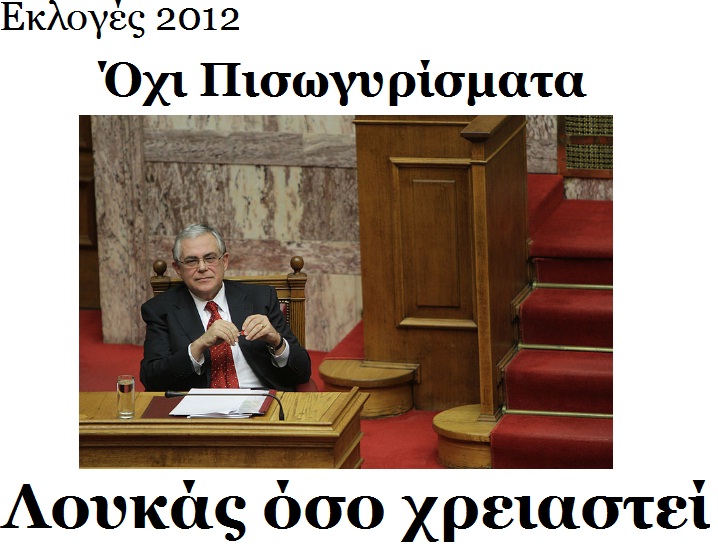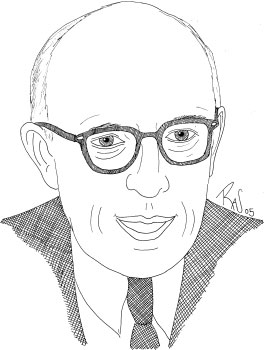<Back to Index>
- Microbiologist René Jules Dubos, 1901
- Architect Louis Isadore Kahn (Itze Leib Schmuilowsky), 1901
- Chairman of the Council of Ministers Alexei Nikolayevich Kosygin, 1904
PAGE SPONSOR


René Jules Dubos (February 20, 1901 – February 20, 1982) was a French microbiologist, experimental pathologist, environmentalist, humanist, and winner of the Pulitzer Prize for General Non-Fiction for his book So Human An Animal. He is credited as an author of a maxim "Think globally, act locally". He devoted most of his professional life to the empirical study of microbial diseases and to the analysis of the environmental and social factors that affect the welfare of humans. His pioneering research in isolating antibacterial substances from certain soil microorganisms led to the discovery of major antibiotics. He performed groundbreaking research and wrote extensively on a number of subjects, including: tuberculosis, pneumonia, and the mechanisms of acquired immunity, natural susceptibility, and resistance to infection.
In later years, Dubos explored the interplay of environmental forces and the physical, mental and spiritual development of mankind. The main tenets of his humanistic philosophy were: global problems are conditioned by local circumstances and choices, social evolution enables us to rethink human actions and change direction to promote an ecologically balanced environment, the future is optimistic since human life and nature are resilient and we have become increasingly aware of the dangers inherent in natural forces and human activities, and we can benefit from our successes and apply the lessons learned to solving other contemporary environmental problems.
René Dubos is an author of a popular maxim "Think Globally, Act Locally" that refers to the argument that global environmental problems can turn into action only by considering ecological, economic, and cultural differences of our local surroundings. This phrase was originated by Dubos as an advisor to the United Nations Conference on the Human Environment in 1972. In 1979, Dubos suggested that ecological consciousness should begin at home. He believed that there needed to be a creation of a World Order in which "natural and social units maintain or recapture their identity, yet interplay with each other through a rich system of communications". In the 1980s, Dubos held to his thoughts on acting locally, and felt that issues involving the environment must be dealt with in their "unique physical, climatic, and cultural contexts."
For the academic years 1963 - 1964 and 1964 - 1965, he was a Fellow on the faculty at the Center for Advanced Studies of Wesleyan University. He served as chairman of the trustees of the René Dubos Center for Human Environment, a non-profit education and research organization, which was dedicated in his honor in 1980. The mission of the Center which was co-founded by William and Ruth Eblen is
to “assist the general public and decision makers in formulating
policies for the resolution of environmental problems and the creation
of environmental values.” Dubos remained actively involved in the
programs of the Centre and activities until his death in 1982. He also
served on the board of trustees of Science Service, now known as Society for Science & the Public, from 1949 - 1952.
In
1998, the René Dubos Center for Human Environments donated a
large portion of its environmental library and archives to Pace University.
The collection consists of works by Dubos as well as those of other
leading environmental scholars, some of which have been annotated by
Dubos himself. According to Robert Chapman,
Professor of Philosophy and Coordinator of Pace’s Environmental Studies
Program, “Pace now has many of Dubos’ own research books from the
Rockefeller University and this means that we can not only look at his
writing, but we can also do an analysis of where his ideas come from
and what influenced him.”
In 1979, the René Dubos Center purchased 30 acres (120,000 m2) of land in North Castle, New York, with donations from two foundations. As a condition of the purchase it agreed to keep the property in a natural state. Nevertheless, in 2002 it attempted to sell the land to developer Michael Cappelli, who planned to develop luxury homes there. The Center filed legal action in 2007 to attempt to complete this transaction; however, New York Attorney General Andrew Cuomo opposed the move, and the State Supreme Court ruled against the Center in that year. In 2009, the controversy was resolved when the Center agreed to sell the land to the village of Mount Kisco, New York.